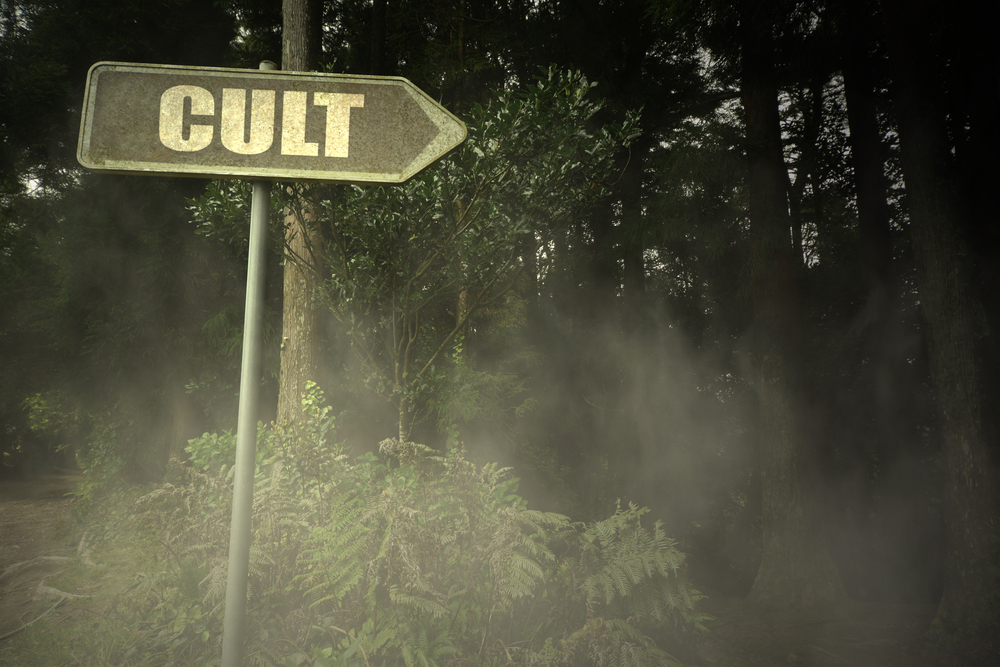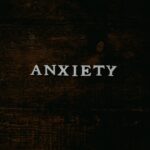Signs You are in a Cult
August is cult awareness month, so I wanted to take some time to write about and share what I’ve learned about what a cult or high control group looks like and how to recover from the impacts of being in a cult. First, a cult is often not what most people think of when they think of a cult. Most people would probably say that they can spot a cult from a mile away. As a mental health professional, I can say that this is not true, no one intentionally joins a cult. People assume that a person must lack intelligence or be gullible. This is also not true; cults often target smart and successful people and use emotional manipulation to get them to join. People join a group or enter a relationship for a variety of reasons including meaning, purpose and belonging.
I wanted to write about what I’ve learned by working with people leaving cults or high control situations and what I’ve gleaned from experts in the field who have an in depth understanding of how easy it can be to get into a cult and how hard it can be to leave one.
Cults can look like many things which people often do not associate with the word cult. Cults can be any of the following:
- Political groups
- Self-help groups
- Online groups
- Family groups
- Corporations
- Activist groups
- Multilevel Marketing Groups (MLM’s)
- Large Group Awareness Trainings (LGAT’s)
- Groups for personal growth
- Spiritual groups
- Religious organizations
- Basically, any group with people both in person and online can get culty
How do people get involved in Cults?
Cults appeal to a person’s unmet needs, their altruistic nature, or a desire to do good in the world. There is a basic human drive for belonging and connection with others. Cults manipulate this need and offer to meet this need. Frequently when someone joins a group, they may be feeling isolated, disconnected from others, or be experiencing some kind of loss. When encountering a group that is seeking members a person may be “love-bombed”, which is when they are showered with love, admiration, connection, acceptance, nurturing, validation or belonging in a way they may have never felt before.
Cults find what a person is missing or simply seeking and promise to provide those things. Has life lost meaning after losing something/someone you care about? The group will provide meaning. Are you afraid of or deeply concerned about something? Death, health, finances, spiritual meaning, or lack of social support may be promised or guaranteed to be addressed when a person initially encounters the cult.
How do I know if the group I am in is a Cult?
Dr. Stephen Hassan, a cult recovery expert and former cult member, created a model after years of study that helps determine how to measure how cult-like a group is. Cults and groups attempting to have authoritarian control can be on a spectrum. The BITE model, that Dr. Hassan created, looks at how a group can attempt to have control over our lives.
Behavior Control
A cult will dictate how you are allowed to behave. It is common for cults to have strict rules regarding sex, food, finances, sleep, appearance, decisions, and how your time is spent and who you spend it with. If you don’t behave the way the leader or group dictates there are consequences or punishments.
Information Control
What information is acceptable to consume or be exposed to is controlled by the group. Deception is used from the start when a person is not told what they are getting into initially. Information from any outside source or anything that may challenge the groups doctrines or beliefs are restricted or forbidden. Propaganda, or only cult related sources of information, are allowed.
Thought Control
Cults work to change the way a person thinks about themselves and the world. They establish that only a certain way of thinking is permissible, and anything outside that is wrong, evil, harmful, sinful, and will certainly lead to unwanted consequences. Questions, analysis, critical thinking, or constructive criticism are not allowed. Questions are framed as being harmful to the group of the leader. Techniques that distract from thinking clearly such as sleep deprivation, constant work, confusing language, or devotional practices can all be used to override the rational part of the brain. Leaving a person to operate from an emotionally charged and irrational place.
Emotional Control
Cults use emotion by manipulating rational and irrational fears. They threaten terrible consequences such as being rejected or isolated permanently, punishments such as death, disease, or insanity. Guilt is used to deem anything outside of what the cult finds permissible as punishable, sinful, weak, not spiritual enough, etc. There is never a reasonable amount of doubt allowed. Emotions are limited to a narrow spectrum and anything outside that spectrum is wrong, harmful or means that you are not implementing the groups mandates, rules, rituals, teachings correctly.
One rule of thumb for asking if you are in a cult like environment is asking yourself what happens if you ask a question, have a doubt, or feel a different feeling? If the answer is punishment, being ostracized, kicked out, threatened or shunned-you definitely have a problem. It is natural and human to question and doubt. A legitimate group or organization will allow you room to ask questions and can stand up to scrutiny without demonizing or excommunicating you.
Other Warning signs you’re in a cult:
- A group or leader has the ONLY answer to your problem
- Any other way of doing things is wrong/bad/evil
- All your problems can be addressed by following what is instructed exactly
- The person leading the group has no credentials and are channeling/receiving/downloading information from some unverifiable source
- The group or leader is the only person that can intervene on your behalf and can speak directly to some unverifiable source that you can’t really be in touch with without them
- You need to leave all other ways of thinking, believing, behaving behind and isolate yourself from others outside the group
- The person has some kind of experience that now makes them an expert, again without any credentials. For example, I have experienced trauma so I know how to fix everyone’s trauma. (I have years of trauma training and practice and I would never make that kind of a claim)
- There is a one size fits all solution for absolutely everyone
What do I do if I realize that I’m in a Cult?
First, think about what the consequences are of leaving and how you might get support in managing or reducing those consequences. There can be very real danger to health, safety, wellbeing, finances and losing connection to everyone and everything that is familiar. Also look at differentiating real from perceived threats-if the cult tells you that you will lose your mind, that is a belief that you hold, not a fact that is true. You will need to have a plan for leaving and hopefully some support from people on the outside that care about you. A helpful resource is https://cultrecovery101.com/recovery-links/
I know I’m in a cult. Now what?
First, know that you are not alone and that many people wake up to realize that they have been in a cult one day. There are great resources for understanding what you have been through and recovering from it. Please know that recovering is a process and having support from people that understand can be helpful for when it is hard. Leaving anything familiar and changing is hard for most people and is especially hard when you are leaving something you have cared about or believed in deeply. It may be the only way you know how to go about things. Please contact me if you have more questions about how you may be able to find support.
Resources:
Dr. Janja Lalich is a cult expert and has been supporting others with understanding cult dynamics and recovery for many years. Dr. Lalich has created an amazing website with lots of information and resources. https://janjalalich.com/. I highly recommend her book Take Back Your Life to anyone getting out of a cult, high control group or abusive relationship.
Dr. Stephen Hassan, who as I mentioned earlier created the BITE model, has a wealth of recovery resources on his website.
The International Cultic Studies Association has a wealth of resources about cults and recovery on their website
If you want to know that you are not alone it can be helpful to hear from others who may have been in a similar situation. I recommend the podcast Indoctrination by Dr. Rachel Bernstein. Dr. Bernstein is licensed marriage and family therapist and an expert in cult recovery.
If you want to understand how cults and cult leaders impact your relationships and your psychological state Dr. Alexandra Stein wrote the book Terror, Love and Brainwashing.



